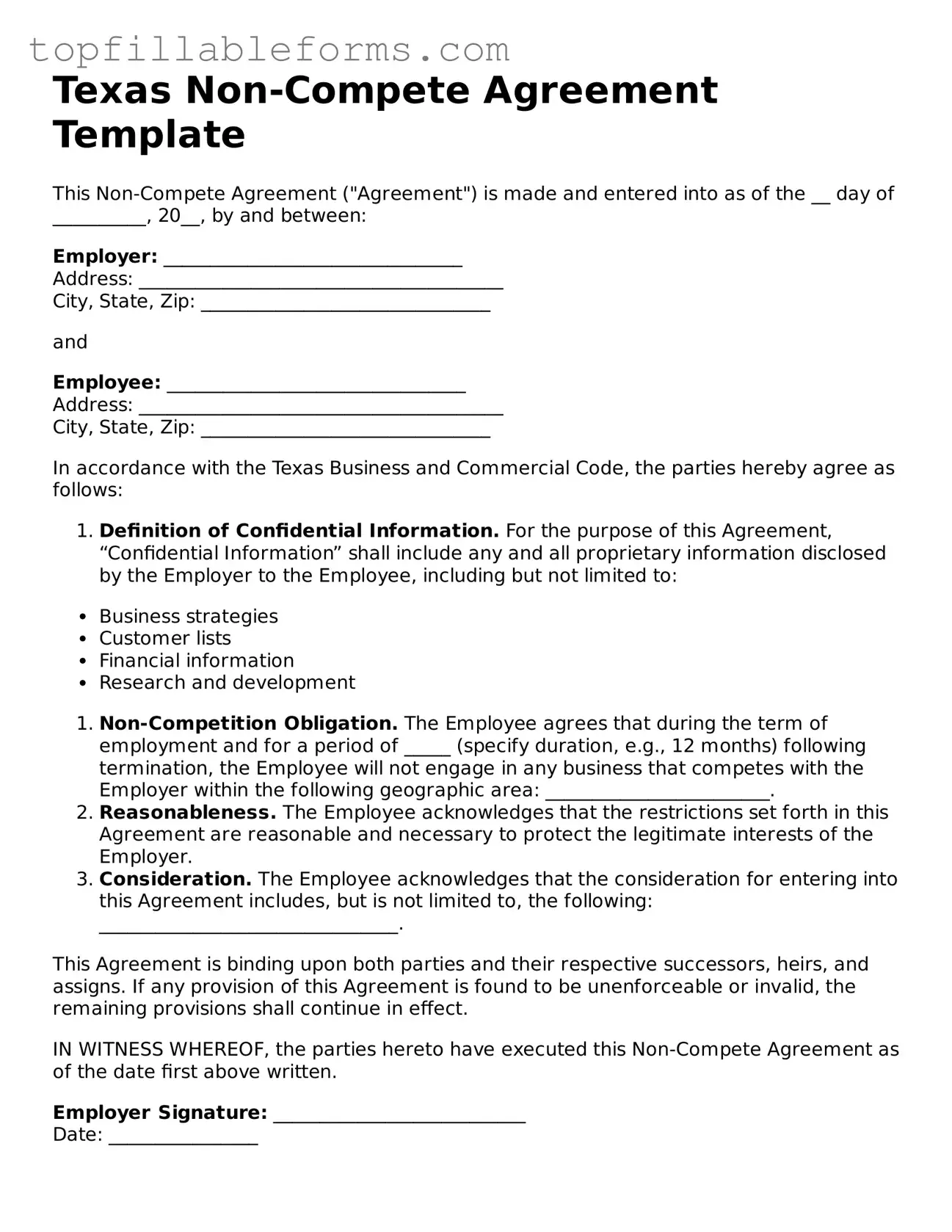Attorney-Verified Non-compete Agreement Template for Texas
A Texas Non-compete Agreement is a legal document that restricts an employee's ability to work for competitors after leaving a job. This form is designed to protect a business's trade secrets and proprietary information. Understanding its requirements and implications is essential for both employers and employees in Texas.
Open Non-compete Agreement Editor Here

Attorney-Verified Non-compete Agreement Template for Texas
Open Non-compete Agreement Editor Here
Finish the form now and be done
Finish your Non-compete Agreement online by editing, saving, and downloading fast.
Open Non-compete Agreement Editor Here
or
▼ PDF File
